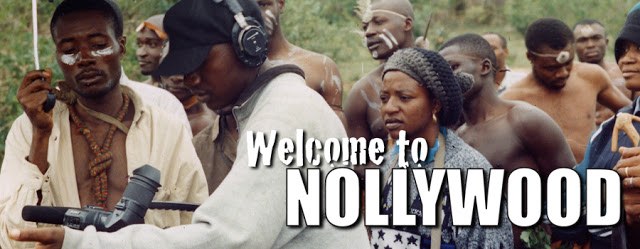The Nigerian movie industry ‘Nollywood’ has had a profound influence on African culture, since its emergence at the turn of the 21st century, The Nigerian accents, style of dress, and behaviors of the people, all of which are Nigerian cultural practices which are now being transmitted as images around the globe. In Nigeria the role of the film industry is still evolving. However, certain factors might as well be affecting the country’s culture either negatively or positively, while the film industry itself is undergoing a crucial transition. The use of songs and oral literature, festivals, rituals, the traditional religion, performing arts, music, dance, and indeed, the entire range of aesthetic which are represented in Nigerian movies has formed an integral part in the spreading of the Nigerian culture across the globe.
Nollywood has not only affected the Nigerian Culture but the culture itself has affected the movie industry over the years. For the sake of this article, the Nollywood industry will be divided into two stages; The Early Nollywood Era and the New Nigerian Cinema.
Right from the very beginning as dated far back as 1926 when the first feature film made in Nigeria ‘Palaver’ was produced by Geoffrey Barkas. The film was also the first film ever to feature Nigerian actors in a speaking role. Movies produced by this time basically were maintained on the cultural practice of the Nigerian people and the core values that upheld the traditional Nigerian Society. During the early Nollywood Era, movies were made mostly with cultural song and also core value traditions of the Nigerian society was used to pass across vital information to the audience, even as far back as 1988 when Soso Meji, the first film produced on video in Nigeria was produced by Ade Ajiboye. The film was screened at the few available theaters at that time.
Subsequently, Alade Aromire produced Ekun 1989 on video, which was screened at the National Theater, Iganmu, Lagos. However, the boom experienced in this era is generally believed to have been kick started by Kenneth Nnebue’s – ‘Living in Bondage’ 1992. Storytelling at this time was something of passion and a means of projecting and propagating the culture of the Nigerian Society to the outside world.
Nollywood later-on, experienced a draft change as the years went by, during the early 2000’s movie production were solely based on copying the culture of the western world and influencing the indigenous cultural practices. This as a result had massive influence on the youths in the society, movies like ‘State of Emergency’, ‘Isakaba’, and ‘High way to the Grave’, ‘Diamond’ amongst others started forming basis for movie production and at this point the diminishing effect on our indigenous tradition was eating deep. The emergence of the New Nigerian Cinema has brought a bit of hope to the Nigerian culture, movies such as ‘Half of a Yellow Sun’, ‘Figurine’, ‘October 1’, ’30 days in Atlanta’ amongst others have tried to localize the Western Culture and blend it with Nigerian Culture, hence, giving an Afrocentric side to movie production in Nigeria

